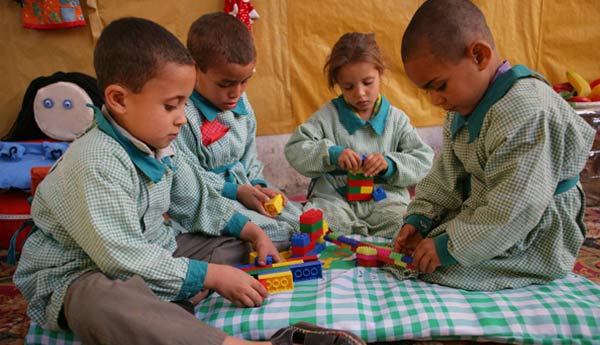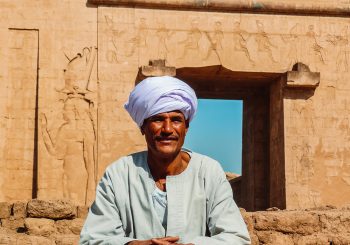By Rahma Diaa, Aswat Masriya
When they found him, the lifeless body of the 12-year-old schoolboy was dangling from the rooftop of a building on a sweltering summer day.
Soon it became known that his shocking death was no accident.
On July 3, 2015 Aly (not his real name) wound a clothesline around his neck and ended his life, apparently afraid of how his father would react when he learns that he got into a fight with their neighbour’s children.
His father confirmed in a police report that the son killed himself out of fear of punishment and did not suspect that a criminal act had taken place.
This was how one child’s short life ended this year but it wasn’t the only young life tragically nipped in the bud.
According to a recent report by The Egyptian Foundation for the Advancement of Childhood Conditions (EFACC), 44 Egyptian children have committed suicide in 2015.
The report was based on media reports of incidents of child suicide which the foundation studied closely to get a deeper understanding of what drives children to end their lives too soon, Nesma Aly, who runs the EFACC’s media unit, told Aswat Masriya.
Reasons cited in the report include psychological, economic and health factors as well as family issues but other children killed themselves by accident, trying to imitate cartoons and movies.
Boys were slightly more prone to commit suicide, accounting for over 52 percent of the cases in the past year.
The highest incidence of suicide was in the age range 16 to 18, where 25 cases were recorded, while 17 cases of suicide occurred among children between ages 11 to 15.
Children in the Egyptian legal definition are below the age of 18.
Three of every four cases of suicide took place in the countryside, while the rest were in urban areas. The foundation attributed this to the higher poverty rates compared to urban areas and lower standard of services.
Suicide for late and mid-teens is a global phenomenon according to the World Health Organization (WHO), which said in 2012 that “suicide is estimated to be a major cause of mortality during adolescence for males and females, particularly at ages 15–19.”
The WHO includes suicide with the top 10 causes of death for teenagers, coming in third place after road accidents and HIV, according to 2012 estimates.
But why are Egypt’s children taking their own lives?
The main reasons for child suicide in Egypt are personal crises and psychological issues, according to EFACC’s report.
One of the biggest causes of this is failing in school exams or the fear of sitting exams, a facet of life which has the biggest impact on Egyptian children and played a main role in the suicide of a 14-year-old boy who hanged himself in his room after failing one subject.
The EFACC report shows that 14 children ended their lives because of family issues and financial reasons.
The “economic factor” is the main driver behind “all violations” against children, the report said. The inability to meet financial needs, wrong approaches to upbringing and the use of corporal punishment were all cited as reasons for suicide.
Two children killed themselves attempting to emulate cartoons and movies. One of them tried to imitate the fictional comic and movie character Spiderman.
Additionally, one child took his life after he became permanently disabled because his family could longer afford the high cost of medical treatment.
The early warning signs
Many of the children who commit suicide threaten to do so before actually taking the step and families must heed their threats and take them seriously, Eman Gaber, a doctor and the head of the childhood and adolescence mental care unit at Abassiya Hospital told Aswat Masriya.
Anxiety and depression peak during adolescence, she said, adding that teenagers can be impulsive. She believes that faith and logic can deter those belonging to older age groups from turning to suicide. In Islam, the faith followed by the majority of Egyptians, suicide is considered a sin.
She advises parents to let their children see psychiatrists if they show any signs of depression, isolation or threaten to kill themselves.
“Ignoring this may drive him [or her] to a fatal suicide attempt,” Gaber said. She also advises parents to monitor what children watch on television and continuously talk to their children to know what they are thinking and correcting them if they blindly try to reenact what they see on the screen.
Child protection, the laws and treaties
Lawyer Ahmed Meselhy, the head of the lawyers’ syndicate committee for the protection of children said that Egyptian children live under “very bad” conditions. While Egypt has signed treaties and adopted laws guaranteeing children’s rights, most importantly the right to life, those laws are not implemented.
Article 6 of the United Nations Convention on the Right of the Child, which Egypt has signed, stipulates that state parties “recognise that every child has the inherent right to life” and that they “shall ensure to the maximum extent possible the survival and development of the child.”
Meselhy says children in Egypt are subjected to multiple violations starting with the lack of access to proper education, as well as being subjected to violence, whether at home or at school.
Article 19 of the convention says that “state parties shall take all appropriate legislative, administrative, social and educational measures to protect the child from all forms of physical or mental violence, injury or abuse, neglect or negligent treatment, maltreatment or exploitation, including sexual abuse…”
Meselhy said possible causes for suicide include sexual assault, which homeless children are often subjected to. The ministry of social solidarity said earlier in 2015 that there are 16,000 homeless children in Egypt, although unofficial estimates cite much higher figures.
The U.S. State Department’s 2015 Trafficking in Persons report says, “Egyptian children, including those among the estimated 200,000 to one million street children, are vulnerable to sex trafficking and forced labor in domestic service, begging and agricultural work.”
Article 34 of the UN convention on the rights of children stipulates that “state parties undertake to protect the child from all forms of sexual exploitation and sexual abuse.”
Meselhy also believes that children in detention and care homes are at risk of suicide because of the mistreatment and violations they face. In 2014, over 9,000 Egyptian children were in care homes.
Meselhy says that the National Council for Motherhood and Childhood its not playing its role properly.
He says that the council is “weak”, which has left children vulnerable to violations and abuse. He holds the council and the government responsible for protecting children from resorting to suicide by improving their living conditions and protecting their rights to live, survive and grow.
The council could not be reached for comment, despite several attempts to reach its media coordinators.







Comments (0)